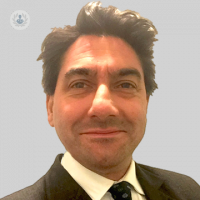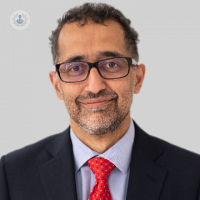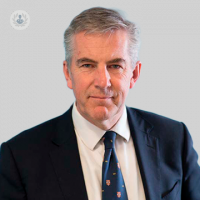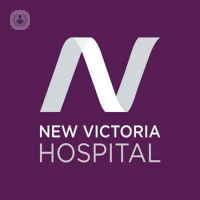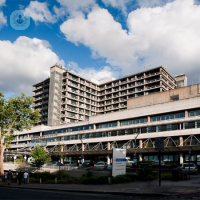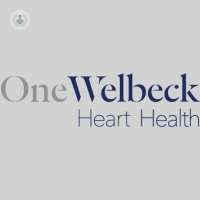What is a heart attack?
A heart attack (myocardial infarction) occurs when a coronary artery becomes obstructed, thus obstructing the flow of blood to the heart. A heart attack is a medical emergency, and if it is suspected, call an ambulance. If blood supply is prolonged, permanent damage could result, which is life-threatening.
If someone has had a heart attack, they will be conscious. Cardiac arrest, on the other hand, is when the heart stops pumping blood around the body, causing breathing to stop. If someone has had cardiac arrest, they will be unconscious and need CPR immediately.

What are the warning signs and symptoms of a heart attack?
Some heart attacks will be preceded by certain warning signs, whilst others will show no signs. Some warning signs include:
- Chest pain
- Difficulty breathing
- Sweating
- Nausea or dizziness
- Fatigue
- Pain that spreads to the left or right arm
What causes a heart attack?
A heart attack occurs when a coronary artery becomes blocked. This often results from the build-up of fatty deposits called atheroma.
The main risk factors of heart attacks are the following:
- Arterial hypertension
- Atherosclerosis (coronary artery disease)
- Smoking
- Stress
- Sedentary lifestyle
- Obesity
- Diabetes
Can a heart attack be prevented?
The best way to avoid having a heart attack is to avoid developing coronary heart disease. This can be done by living a healthy lifestyle, and avoiding the following:
- Smoking
- Being overweight
- Poorly managed diabetes
- High cholesterol
- High blood pressure
- Being sedentary
It is important to carry out clinical and/or cardiological checks periodically, especially if you are over the age of 40 and having a family history or heart disease. This may involve having tests, such as an echocardiogram and an electrocardiogram. These studies allow us to know if the patient is within the risk parameters. If you are within these risk parameters, it is recommended that you make certain lifestyle changes.
What is the treatment for heart attacks?
Following a heart attack, medications, and surgery will be recommended to prevent future heart attacks.
Medications include:
- Aspirin or other blood-thinning medications
- Thrombolytic medications
- Beta-blockers
- Anticoagulants
- Blood pressure medication
Surgery may involve angioplasty or stenting to find blockages and to remove them. A stent may be inserted to keep certain arteries open. Coronary bypass surgery may also be needed, especially in an emergency, to get blood flowing back to the heart. This involves rerouting blood around the blocked artery back to the heart. Valve replacement may also be required if they are not functioning correctly. In the most severe of cases, a heart replacement will be performed.
11-13-2012 06-05-2023Heart attack
Dr Syed Afzal Sohaib - Cardiology
Created on: 11-13-2012
Updated on: 06-05-2023
Edited by: Conor Lynch
What is a heart attack?
A heart attack (myocardial infarction) occurs when a coronary artery becomes obstructed, thus obstructing the flow of blood to the heart. A heart attack is a medical emergency, and if it is suspected, call an ambulance. If blood supply is prolonged, permanent damage could result, which is life-threatening.
If someone has had a heart attack, they will be conscious. Cardiac arrest, on the other hand, is when the heart stops pumping blood around the body, causing breathing to stop. If someone has had cardiac arrest, they will be unconscious and need CPR immediately.

What are the warning signs and symptoms of a heart attack?
Some heart attacks will be preceded by certain warning signs, whilst others will show no signs. Some warning signs include:
- Chest pain
- Difficulty breathing
- Sweating
- Nausea or dizziness
- Fatigue
- Pain that spreads to the left or right arm
What causes a heart attack?
A heart attack occurs when a coronary artery becomes blocked. This often results from the build-up of fatty deposits called atheroma.
The main risk factors of heart attacks are the following:
- Arterial hypertension
- Atherosclerosis (coronary artery disease)
- Smoking
- Stress
- Sedentary lifestyle
- Obesity
- Diabetes
Can a heart attack be prevented?
The best way to avoid having a heart attack is to avoid developing coronary heart disease. This can be done by living a healthy lifestyle, and avoiding the following:
- Smoking
- Being overweight
- Poorly managed diabetes
- High cholesterol
- High blood pressure
- Being sedentary
It is important to carry out clinical and/or cardiological checks periodically, especially if you are over the age of 40 and having a family history or heart disease. This may involve having tests, such as an echocardiogram and an electrocardiogram. These studies allow us to know if the patient is within the risk parameters. If you are within these risk parameters, it is recommended that you make certain lifestyle changes.
What is the treatment for heart attacks?
Following a heart attack, medications, and surgery will be recommended to prevent future heart attacks.
Medications include:
- Aspirin or other blood-thinning medications
- Thrombolytic medications
- Beta-blockers
- Anticoagulants
- Blood pressure medication
Surgery may involve angioplasty or stenting to find blockages and to remove them. A stent may be inserted to keep certain arteries open. Coronary bypass surgery may also be needed, especially in an emergency, to get blood flowing back to the heart. This involves rerouting blood around the blocked artery back to the heart. Valve replacement may also be required if they are not functioning correctly. In the most severe of cases, a heart replacement will be performed.
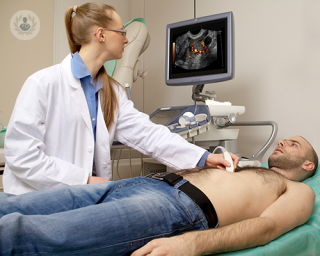

Echocardiogram: a powerful diagnostic tool for the heart
By Dr Malcolm Burgess
2024-11-21
An echocardiogram (a cardiac ultrasound) is used to assess most types of heart disease. Dr Malcolm Burgess explains when this diagnostic tool is used, the accuracy of results and what next steps might be needed. See more


What is hypertension and why should you take notice?
By Dr Mark Thomas
2024-11-21
Hypertension is much more common than you might think. Around a third of UK adults have it and many may not even realise. The only way to know is to get tested. Dr Mark Thomas explains what the numbers on blood pressure readings mean and how he can help you if you have been recently diagnosed. See more


Angina: when is it serious?
By Dr Dwayne Conway
2024-11-21
We invited highly esteemed consultant interventional and general cardiologist Dr Dwayne Conway to shed light on how cardiovascular health and angina symptoms relate to heart attack risk. The revered specialist also reveals the most important risk factors associated with heart attack risk and the lifestyle measures which can improve heart health most significantly. See more


A holistic approach to heart health
By Dr Mohamed Al-Obaidi
2024-11-21
Heart health is paramount to overall well-being, and adopting a holistic approach can significantly enhance cardiovascular function. This encompasses not only physical health but also mental and emotional well-being, creating a comprehensive strategy for a healthy heart. We speak to leading consultant cardiologist Dr Mohamed Al-Obaidi, who explains the key components to maintaining heart health. See more
Experts in Heart attack
-
Dr Nick Linton
CardiologyExpert in:
- Atrial Fibrillation
- Arrhythmia
- Hypertension (high blood pressure)
- Cardiomyopathy
- Heart attack
- Heart murmur
-
Professor Robin Choudhury
CardiologyExpert in:
- Chest pain
- Palpitations
- Cardiac risk
- Coronary heart disease
- Heart attack
- Long Covid
-
Dr David Lipkin
CardiologyExpert in:
- Coronary heart disease
- Angina
- Heart failure
- Coronary angioplasty
- Heart attack
- Palpitations
-
Dr Iqbal Malik
CardiologyExpert in:
- Coronary angioplasty
- TAVI (transcatheter aortic valve implantation)
- Atrial septal defect
- Patent foramen ovale
- Coronary heart disease
- Heart attack
-
Dr Nicholas Robinson
CardiologyExpert in:
- Chest pain
- Heart check up
- Angina
- Heart attack
- Stent
- Coronary angiography
- See all

New Victoria Hospital
New Victoria Hospital
184 Coombe Lane West, Kingston upon Thames, KT2 7EG
No existe teléfono en el centro.
By using the telephone number provided by TOP DOCTORS, you automatically agree to let us use your phone number for statistical and commercial purposes. For further information, read our Privacy Policy
Top Doctors

The Royal Free Hospital
The Royal Free Hospital
Pond Street, Hampstead. NW3 2QG
No existe teléfono en el centro.
By using the telephone number provided by TOP DOCTORS, you automatically agree to let us use your phone number for statistical and commercial purposes. For further information, read our Privacy Policy
Top Doctors

OneWelbeck Heart Health
OneWelbeck Heart Health
Floor 3, 1 Welbeck St, London, W1G 0AR
No existe teléfono en el centro.
By using the telephone number provided by TOP DOCTORS, you automatically agree to let us use your phone number for statistical and commercial purposes. For further information, read our Privacy Policy
Top Doctors
-
New Victoria Hospital
184 Coombe Lane West, Kingston upon Thames, KT2 7EG, South LondonExpert in:
- Cardiology
- General Surgery
- Orthopaedic surgery
- Breast augmentation
- Pain management
- Spine
-
The Royal Free Hospital
Pond Street, Hampstead. NW3 2QG, Central LondonExpert in:
- General Surgery
- Orthopaedic surgery
- Robotic Surgery
- Dermatology
- Obstetrics and Gynaecology
- Paediatrics
-
OneWelbeck Heart Health
Floor 3, 1 Welbeck St, London, W1G 0AR, W1G Marylebone LondonExpert in:
- Clinical analysis
- Arrhythmia
- Palpitations
- See all
- Most viewed diseases, medical tests, and treatments
- Autoimmune diseases
- Joint pain
- Nutrition
- Genetic testing
- Abdominal pain
- Minimal access surgery (keyhole surgery)
- Vaginal cytology
- Aortic aneurysms
- Parkinson's disease
- Biomarkers


